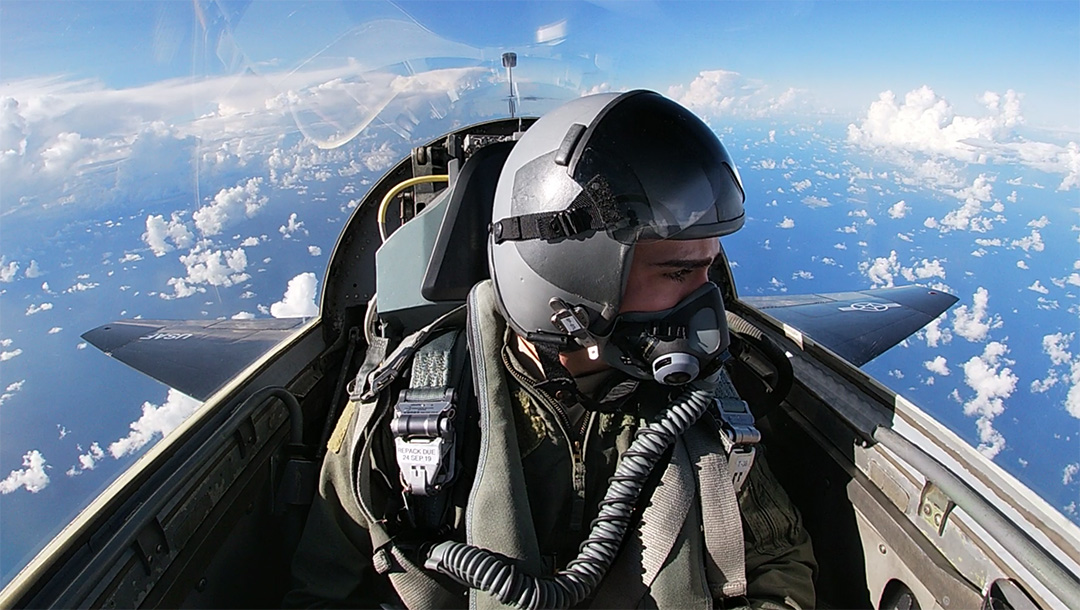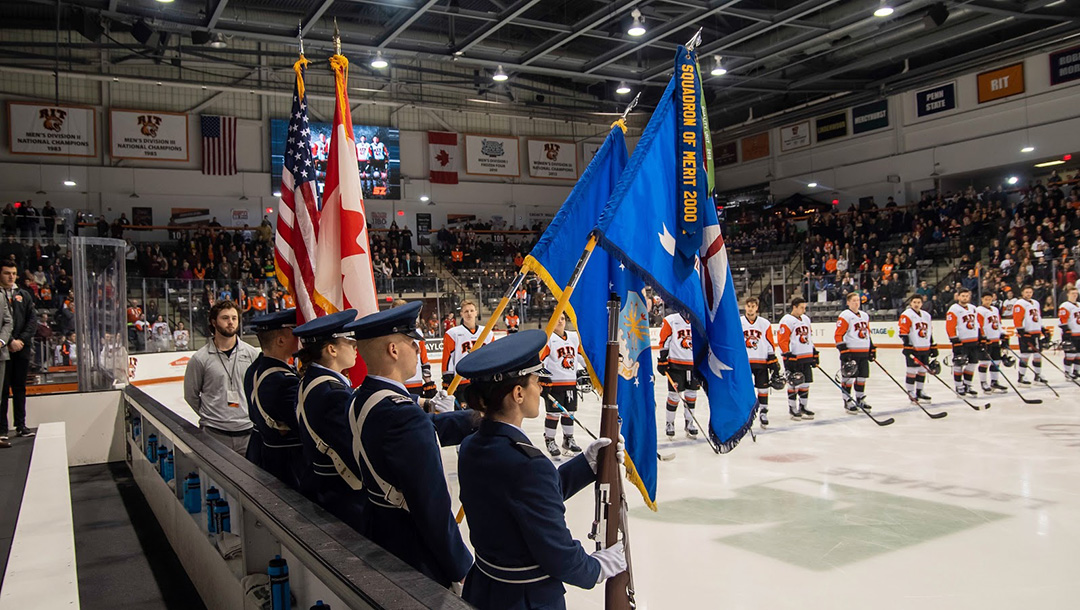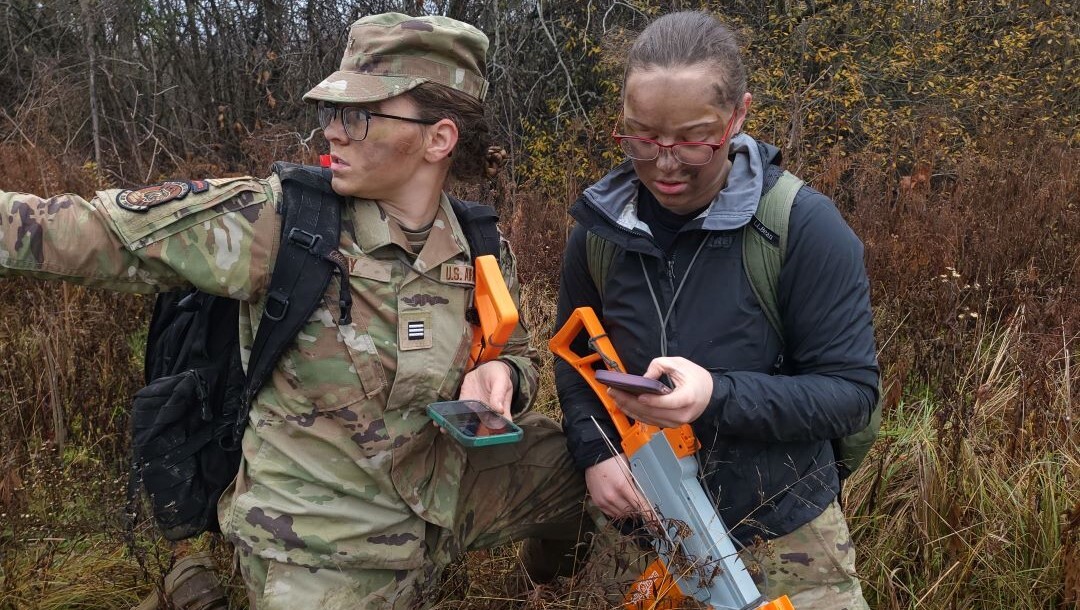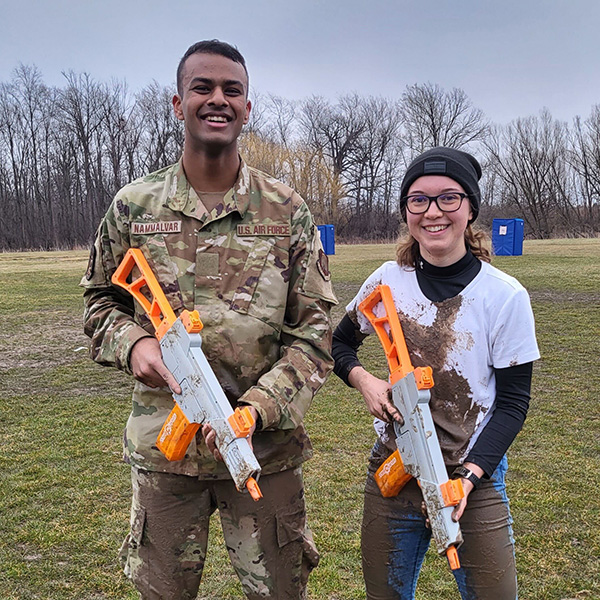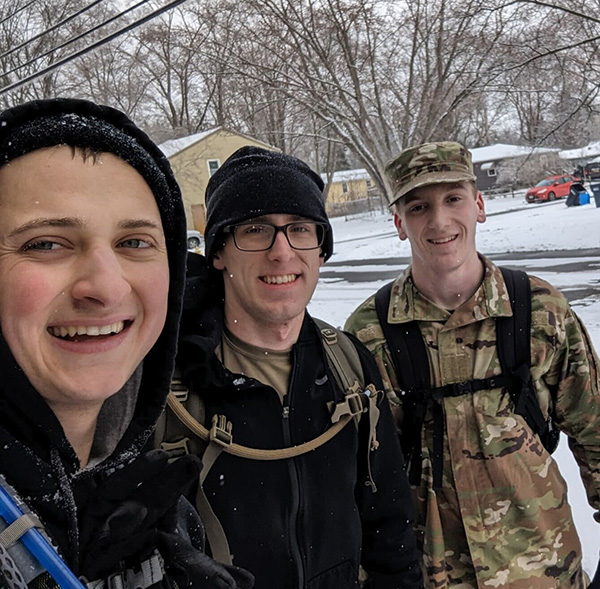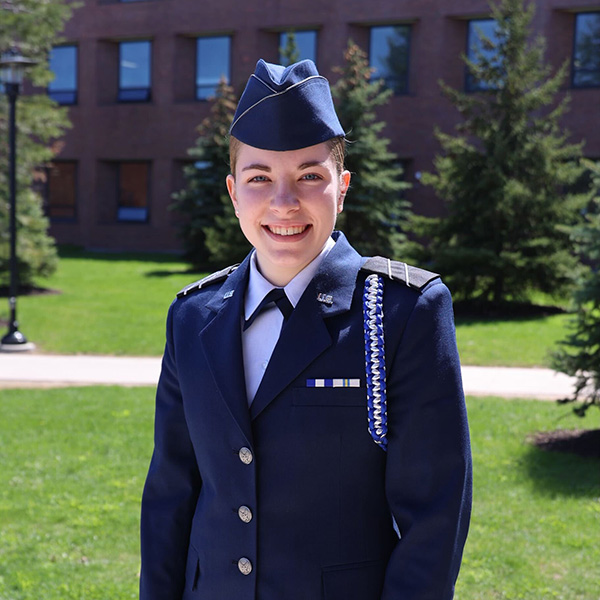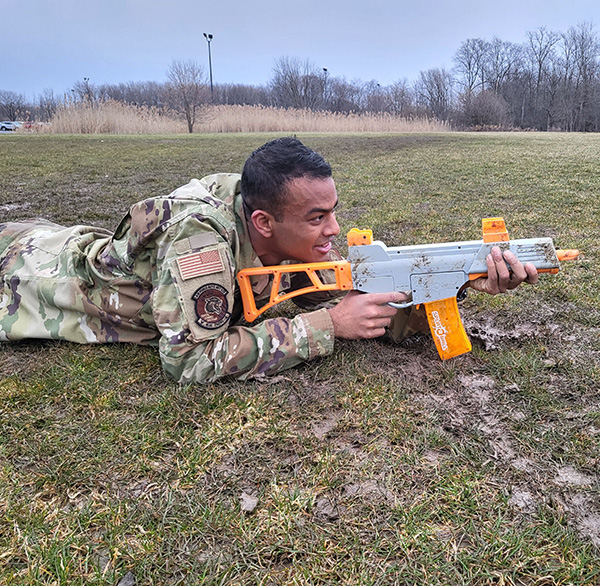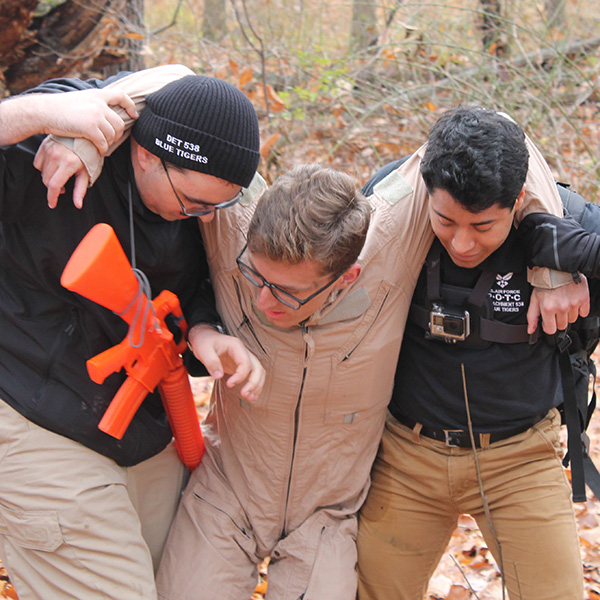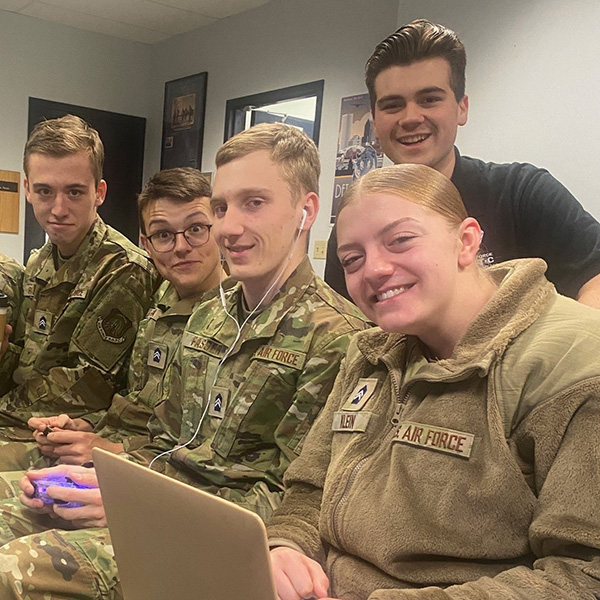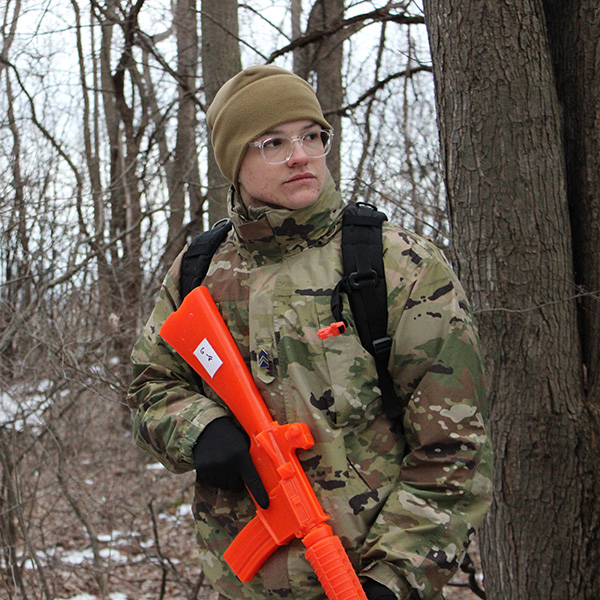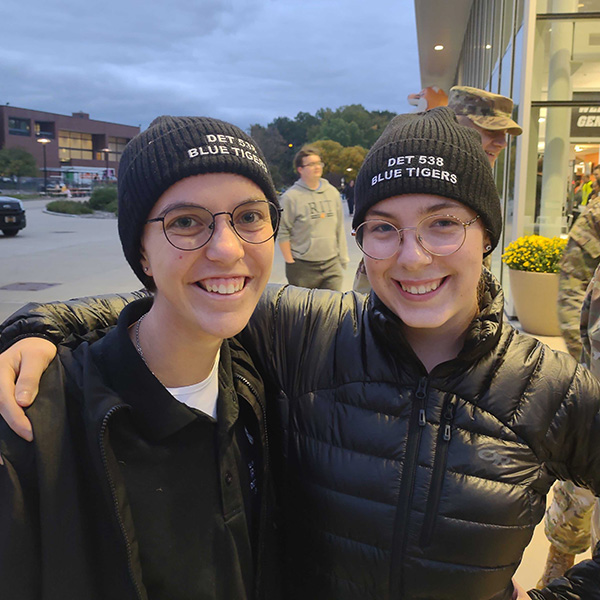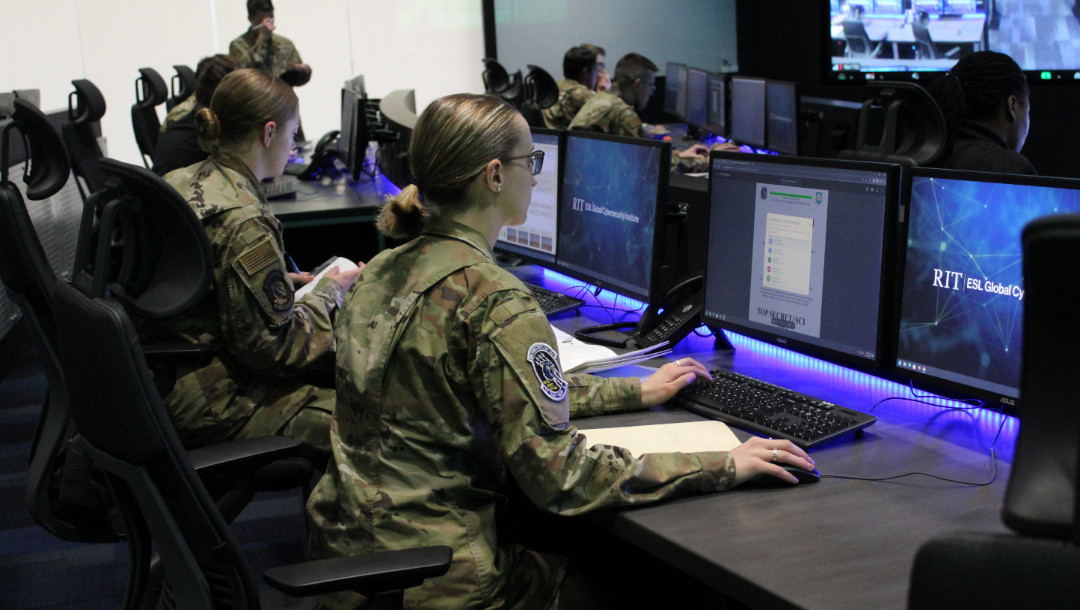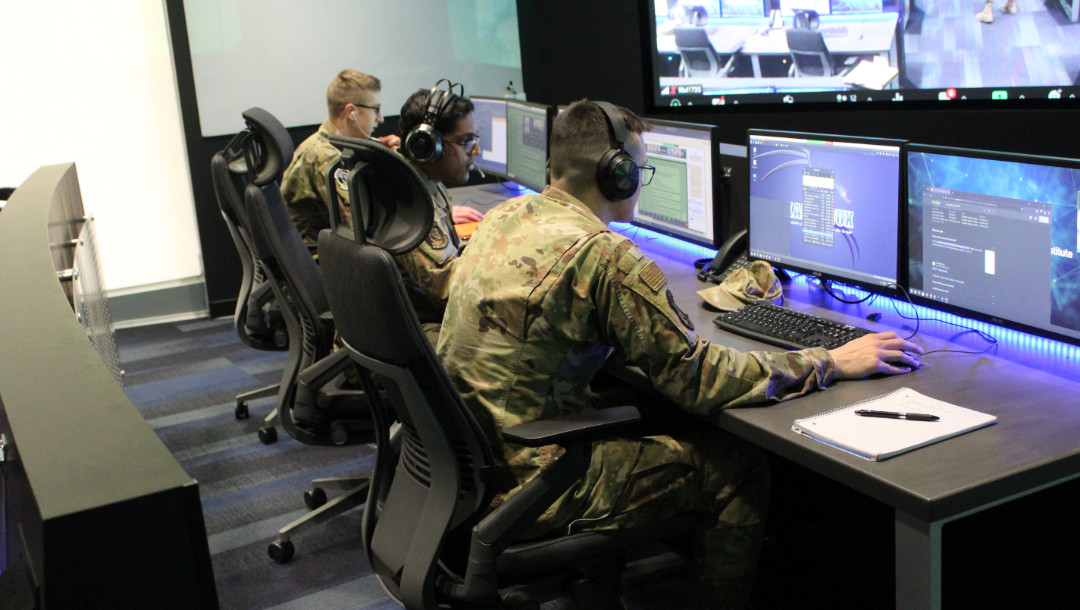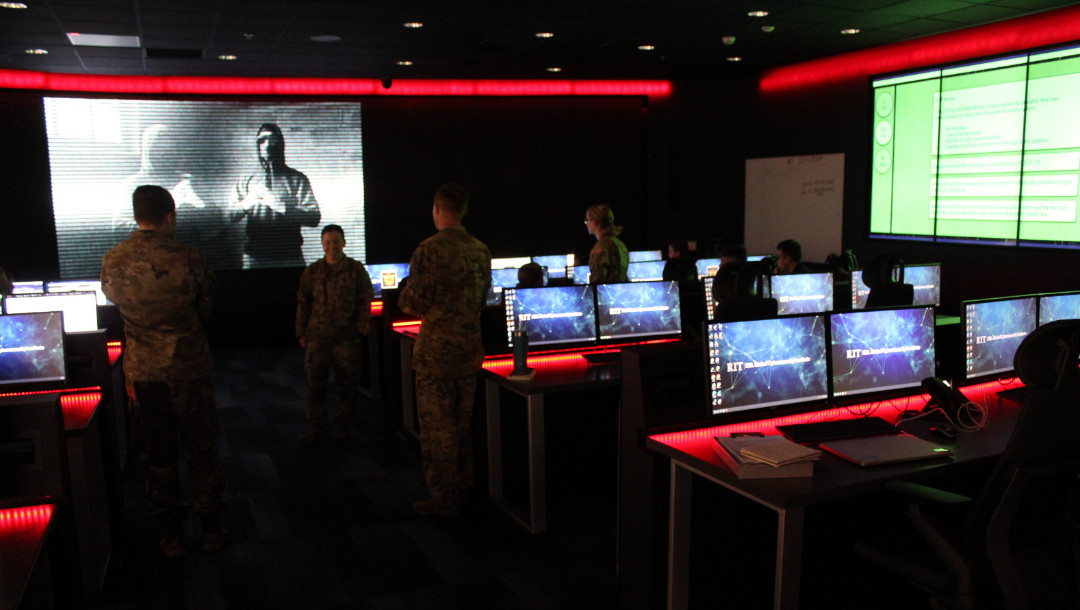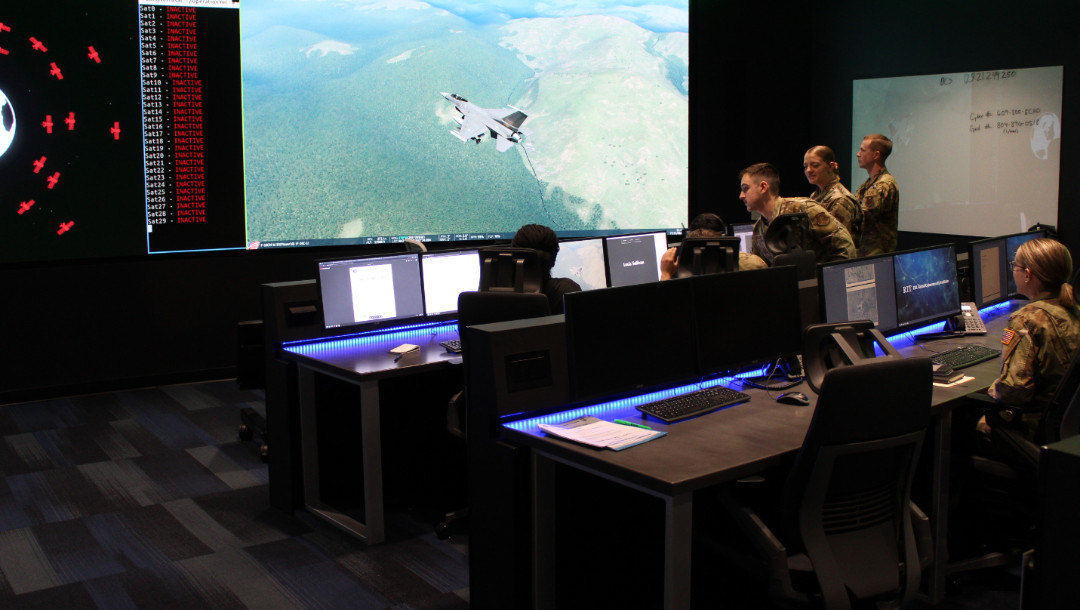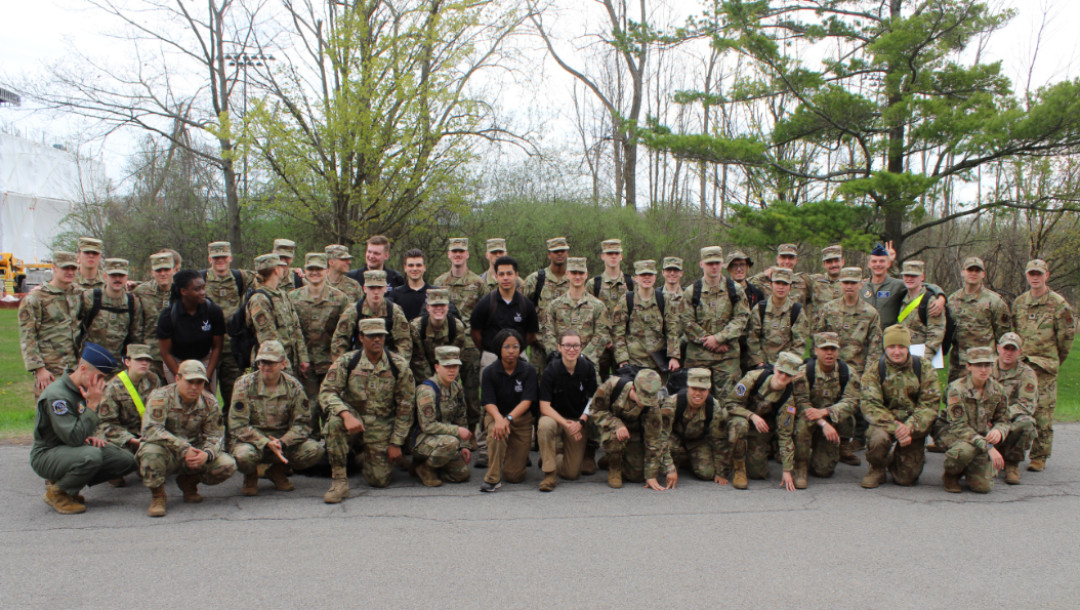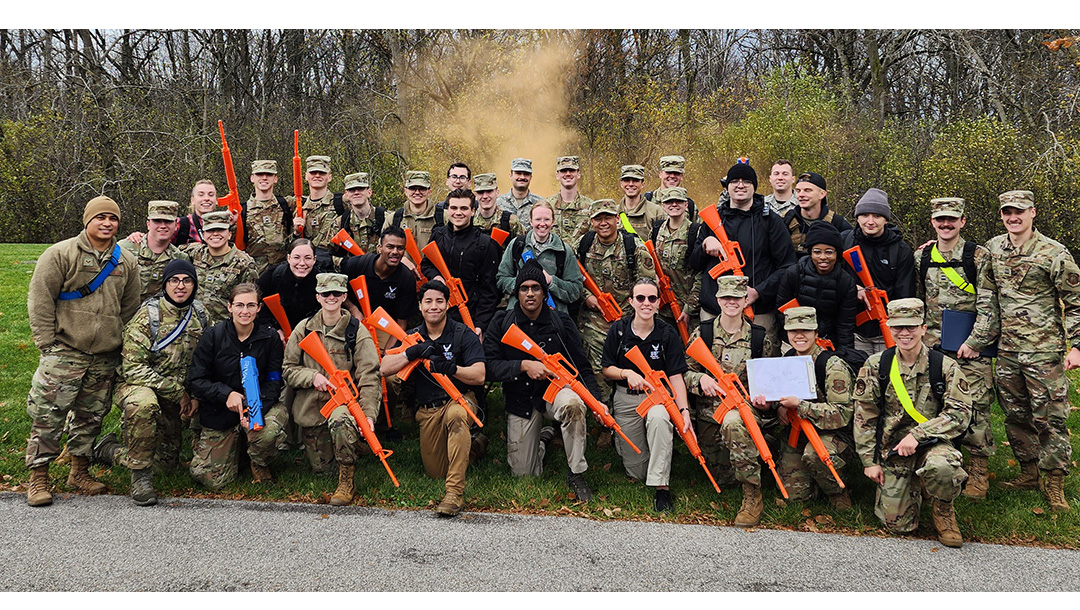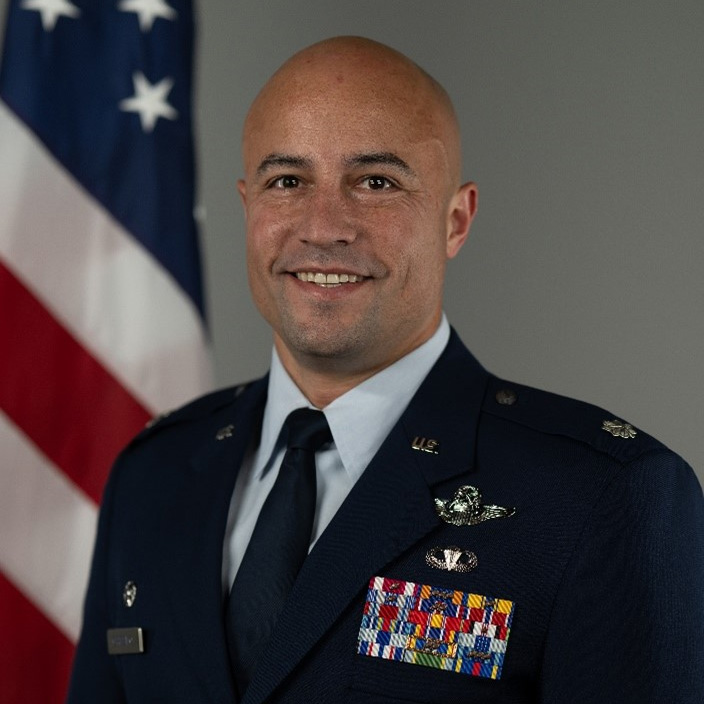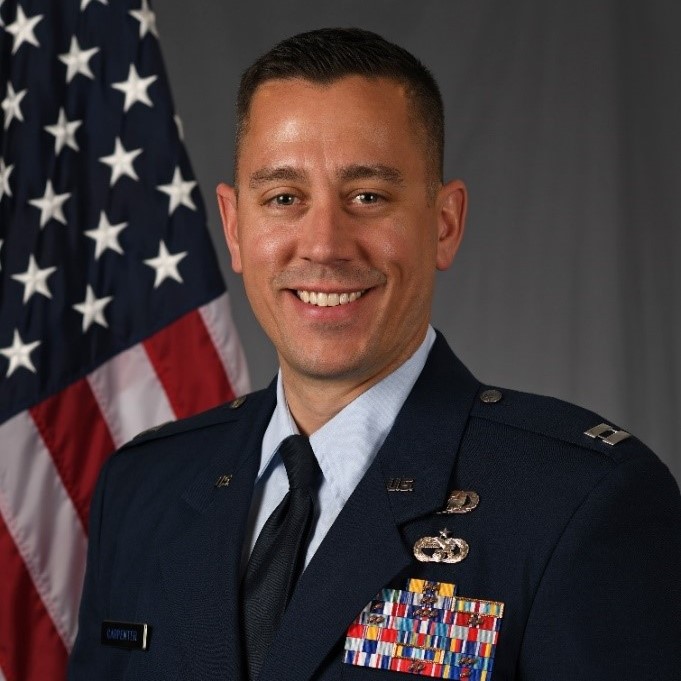Air Force ROTC
- RIT/
- University Studies/
- ROTC/
- Air Force ROTC
Air Force ROTC Detachment 538
17 Lomb Memorial Drive
Rochester, NY 14623
ROS-A250
585-475-5197
afrotc@rit.edu
What is Air Force ROTC?
Air Force Reserve Officer Training Corps is a program which allows college students to pursue their college degree while being developed into leaders who will go on to fulfill the duties of the Air Force and Space Force. Upon completion of the program, you will be commissioned as a second lieutenant and can serve in a variety of careers such as aviation, cyberspace operations, space operations, developmental engineering, intelligence, special operations, medical, and over 100 more.
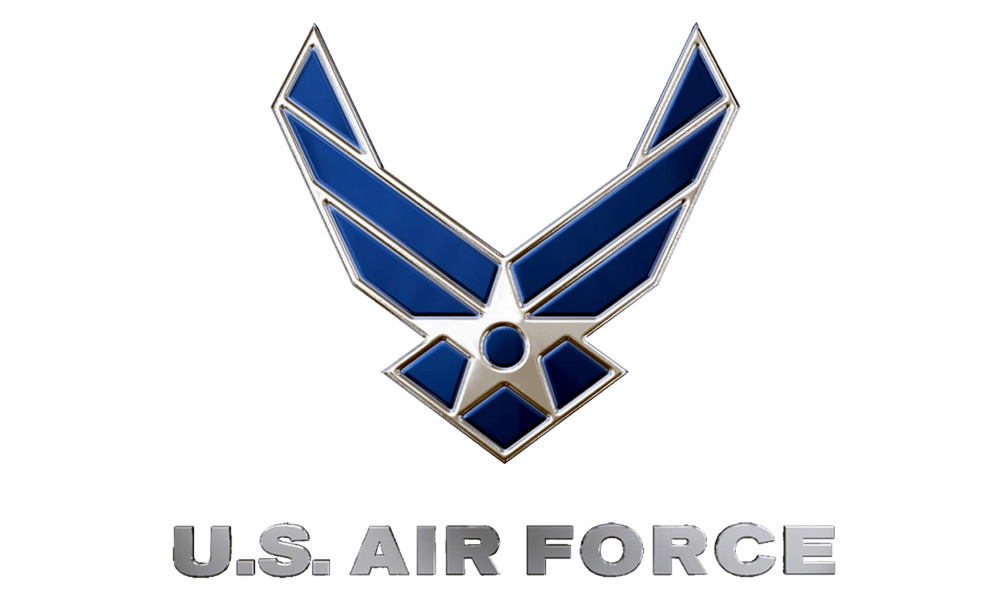
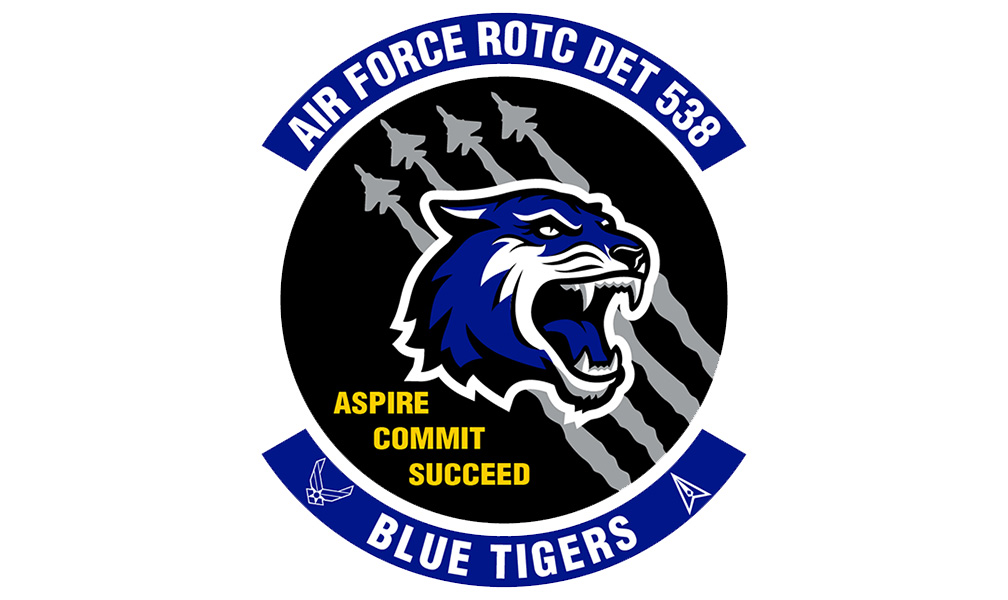
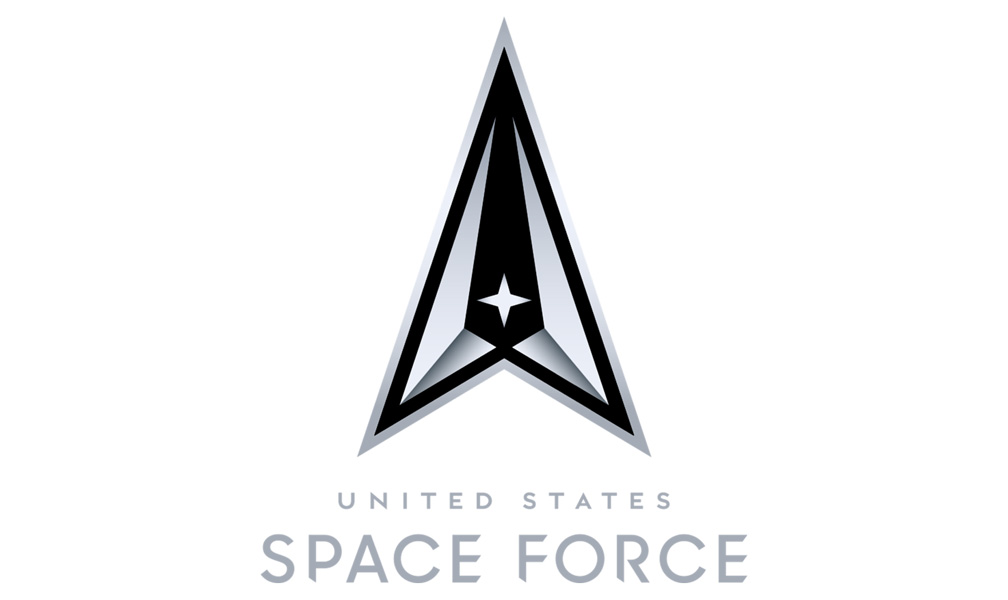
Curriculum and Scholarships
The Reserve Officer Training Corps program consists of two main phases that span a cadet's academic career. These phases are separated by Field Training and are broken down by year level with specific required classes designed to teach and prepare cadets to become an Air Force or Space Force Officer.
Scholarships are available to prospective high school seniors; those already enrolled in college, and enlisted Airmen.
Learn more about Curriculum, Field Training, and Scholarship Opportunities
Why Detachment 538?
We are recognized as one of the top detachments in Air Force ROTC! Our cadets host a robust multi-domain exercise every semester, where we work with our sister services and other AFROTC cadets around the nation. Headquarters Air Force ROTC is looking to bring our innovations to the rest of the nation.
Testimonials
I have made lifelong friends that share my interests in serving in an organization bigger than myself.
I gained a community of people that I can rely on to push me to be better.
The mentorship and help I receive from other cadets for general college things has greatly helped me succeed.
Even if you're prior active-duty service; this program and the people you meet will improve your leadership skills greatly and further your future success in your military career.
One of my favorite ROTC experiences was our most recent Multi-Domain Field Training Exercise, where we were split up into three different teams: Air, Cyber, and Ground.
Air Force ROTC has given me the chance to meet and become future life-long friends with people that I would not have interacted with in a normal college experience.
I finally found something that makes me excited for the future. I have a real passion.
Awards and Accolades
Air Force ROTC Detachment 538 at RIT has been named the “Right of Line Medium-Size Detachment of the Year” for Academic Year 2021
This highly competitive award is the pinnacle recognition granted to an AFROTC detachment. The award considers mission accomplishment, education and training, recruiting and retention, university and public relations, and cadet accomplishments.
2021 Department of Defense ROTC and Higher Education Institution Partnership Excellence Award
This award is given nationwide each year by the Secretary of Defense to a single ROTC detachment and its host college. There are more than 400 ROTC Army, Navy, and Air Force detachments in the country. This award recognizes the detachment’s success as well as RIT’s contribution to the program.
Multi Domain Field Training Exercises
Every semester our cadets prepare a large scale training exercise which typically incorporates a ground team, cyber team, and air team. Using various facilities and equipment such as our detachment's VR Flight Simulators, the three teams use their specialties to assist work together to complete the mission.
Cadre and Staff
Beth Polmateer
RIT Senior Staff Assistant
585-475-5197
beth.polmateer@rit.edu
Extracurricular
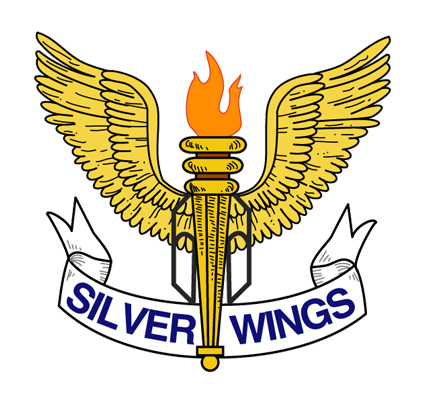
Silver Wings
Silver Wings is a national, professional organization dedicated to creating proactive, knowledgeable, and effective civic leaders through community service and education about national defense. It is made up largely of civilians interested in personal development, leadership, service, and support of our military personnel.
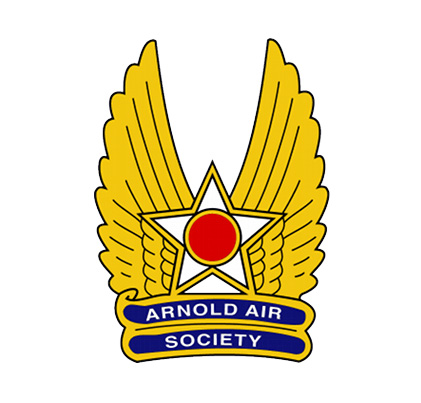
Arnold Air Society
Arnold Air Society is a professional, honorary service organization advocating the support of aerospace power. It is a national organization of cadets, from various ROTC detachments. The squadron at Rochester Institute of Technology, founded in 1986, is named after Colonel Andrew J Dougherty who was instrumental in the creation of Detachment 538. This squadron has a great legacy, and continually looks to further it through exemplary community service, fundraising, and social events
Color Guard
Color Guard is a special team that participates in events that represent that Detachment, the Air Force or the United States of America. Color Guard participants display flags and stand in between two guards with rifles while marching. They participate in parades, present colors at ceremonies and even perform POW/MIA tributes.
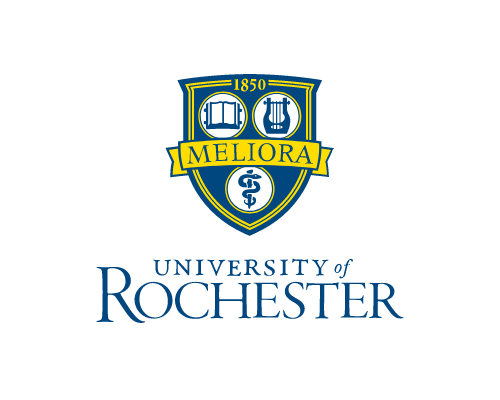
University of Rochester
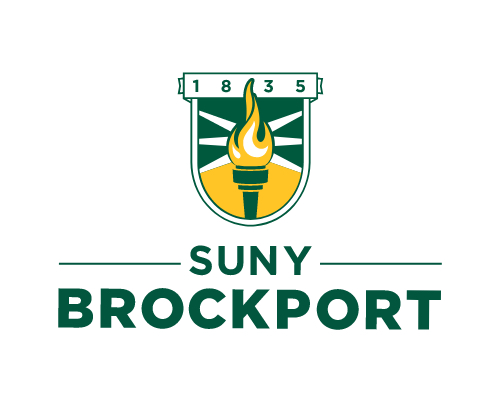
SUNY Brockport
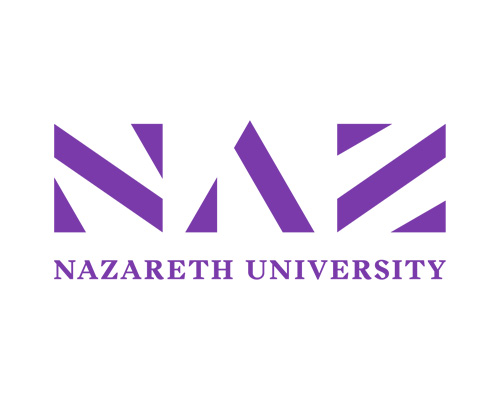
Nazareth University
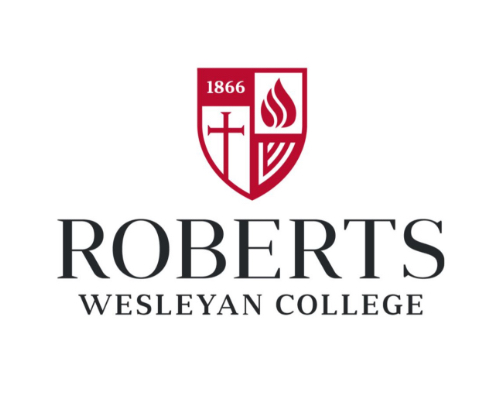
Roberts Wesleyan College
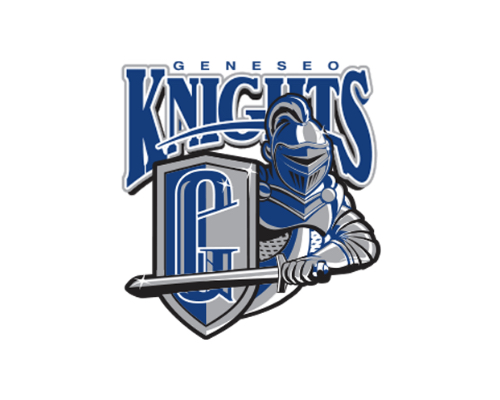
SUNY Genesseo
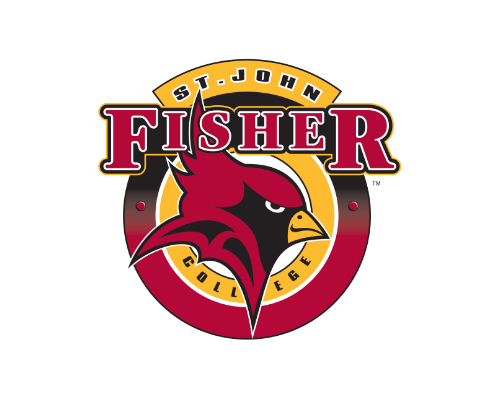
St. John Fisher University
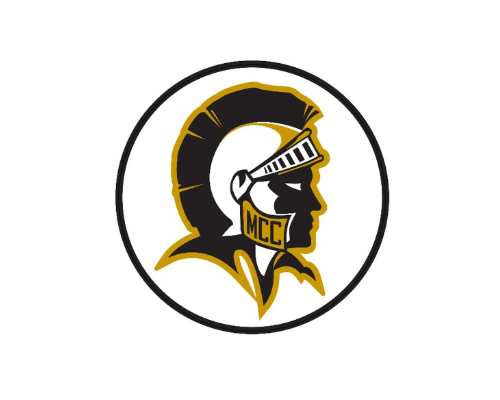
Monroe Community College
History
Detachment 538's history begins in 1981 when it was first proposed with the help of Colonel Andrew J. Dougherty as AFROTC Operating Location 535B. Colonel Dougherty was the Executive Assistant to the President of Rochester Institute of Technology at the time, and in these early days, he was instrumental in pushing support for Air and Space power on campus. The detachment quickly began growing, gaining an Arnold Air Society Squadron in 1986, and soon Operating Location 535B became a full-fledged detachment, being renamed Detachment 538 in 1989.
The detachment saw continued growth, making a move from the Eastman Building to its current location in Lewis P Ross Hall in 2005. In 2010, Detachment 538 won the AFROTC Northeast Region High Flight Award for medium-size detachments and most recently in 2020. This award is given to the highest performing detachment in each region.
Detachment 538's Arnold Air Society squadron and Silver Wings chapter has been setting the example at the regional and national levels. Arnold Air Society has held Region Headquarters for the northeast region in 1989, 1994, 2004, 2006, 2012, and 2015, 2024, and 2026. The squadron also served as the National Headquarters in 2014. Silver Wings, re-activated in 2013, has also seen plenty of recent success, serving as Region Headquarters in 2024, and National Headquarters in 2015, 2019 and 2021. In 2025, AAS and SW jointly hosted RCON at RIT.
Today, Detachment 538 continues to strive for growth and excellence in everything that it does, commissioning some of the highest-caliber cadets in the nation. Each year, commissioners go on to serve as Pilots, Cyberspace Officers, Space Force Officers, Civil Engineers, Intelligence Officers, Maintenance Officers, Missile Officers, Combat Systems Officers and much more.
Frequently Asked Questions
Call or e-mail to get in contact with a cadre member:
afrotc@rit.edu
585-475-5197
No, any major may participate in AFROTC. However, certain career fields (engineering, medical, weather, etc.) require a specialized technical degree to be eligible.
Cadets will be required to pass an Air Force Fitness Assessment prior to attending Field Training, or activating a scholarship. The fitness test consists of 1.5 mile run, 1 minute of Push-ups, and 1 minute of crunches.
- High School Scholarship Pays full (100 percent) college tuition and authorized fees at any public or private institution with an Air Force ROTC detachment.
- All High School Scholarship recipients will receive a monthly living expense stipend and an annual book stipend.
- RIT also offers a Room and Board Grant to all AFROTC High School Scholarship recipients.
- If you’re already in college, you can still experience the benefits of joining Air Force ROTC. In addition to detachment-specific scholarship opportunities, freshman and sophomore students may be eligible for the In-College Scholarship Program (ICSP). The program awards scholarships based on merit.
No, scholarship students begin incurring a service commitment at the beginning of their second year. Non-scholarship students incur a service commitment upon completion of Field Training. Graduates will serve a 4-year Active Duty service commitment and a 4-year Inactive Reserve commitment. Certain career fields (pilot, navigator, legal etc.) may incur additional service commitments.
Students do not have to attend RIT to participate. Detachment 538 has agreements with 14 local colleges to support the success of the cadets.
Cadets in their second year, prior to Field Training, may express their interest into the United States Space Force. If accepted by the Space Force they will continue in the Air Force ROTC program and commission as a United States Space Force Officer post-graduation.
Helpful Links
Air Force
Space Force
Air Force Recruiting
Holm Center
Air Force ROTC
Air Force Compliance
The appearance of hyperlinks does not constitute endorsement by the Department of the Air Force of non-U.S. Government sites or the information, products, or services contained therein. Although the Department of the Air Force may or may not use these sites as additional distribution channels for Department of Defense information, it does not exercise editorial control over all of the information that you may find at these locations. Such hyperlinks are provided consistent with the stated purpose of this website.
The Air Force ROTC Detachment 538 Website is provided as a public service by Rochester Institute of Technology and the Department of the Air Force. Information presented on this service, not identified as protected by copyright, is considered public information and may be distributed or copied. Use of appropriate byline, photo, and image credits is requested. Unauthorized attempts to upload information or change information on this site are strictly prohibited and may be punishable under the Computer Fraud and Abuse Act of 1987 and the National Information Infrastructure Protection Act (Section 1030 of Title 18, United States Code). If you have any questions or comments about the information presented here, please forward them to afrotc@rit.edu.
Current as of 17 July 2025
